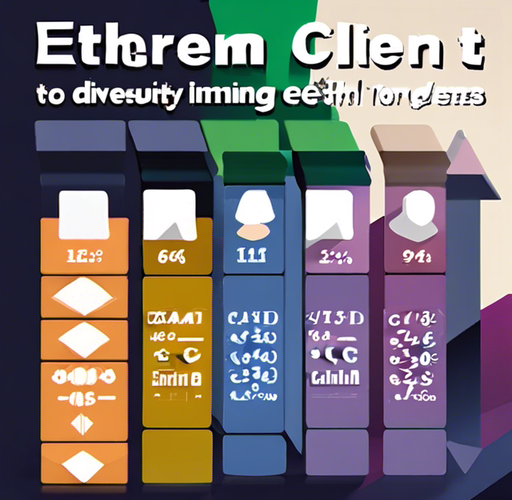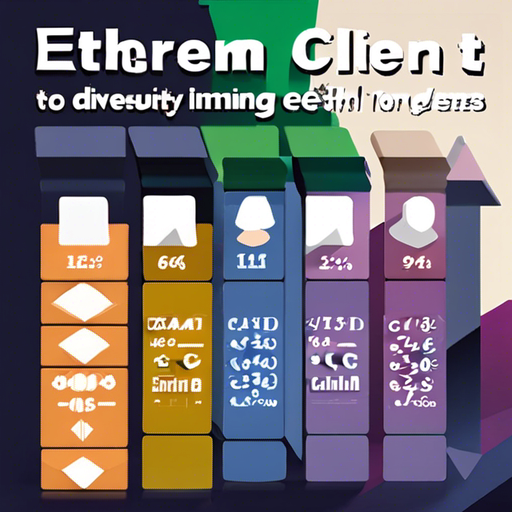In late January, the market share of Geth, a major Ethereum execution client, reached a high of 84%. However, following Coinbase’s recent decision to switch half of its validators to Nethermind, Geth’s share has dropped to 66%. Despite this, one commentator believes that the battle for decentralization is far from over.
The reduced reliance on Geth is a step towards addressing the long-standing concern of centralization risk for Ethereum. This is because a critical bug in an execution client with a share of 66% or more could potentially halt the chain’s finalization. However, it’s important to note that the industry should not declare victory just yet.
On March 22, Coinbase Cloud announced that approximately 50% of its validators have migrated to Nethermind, which has boosted the execution client’s share to 22%, according to Client Diversity. Additionally, Besu holds a 10% share of Ethereum validators, while Erigon, also supported by Coinbase, holds 2%, bringing the total minority client share to around 34%.
Execution clients play a crucial role in handling transactions and executing smart contracts on the Ethereum blockchain. Geth has long been considered the most advanced client, but its dominance among Ethereum validators has led to an imbalance in execution client diversity over the years.
The battle is not yet won
“We cannot claim victory just yet,” stated Lachlan Feeney, founder and CEO of Labrys, an Ethereum infrastructure company, in an interview with Cointelegraph.
Feeney argues that the method used by Client Diversity to gather their data is flawed and that Geth must drop below the 66% threshold by a significant margin to ensure that a supermajority bug is not possible.
The true triumph will only be achieved when no single client holds more than 33% of the market share, Feeney added.
He stressed the importance of individual staking in diversifying the execution of clients, which would also protect those stakers from being vulnerable to a supermajority bug on Geth.
Ethereum decentralization advocate “Superphiz” recently warned that a critical bug in Geth could potentially wipe out 80% or more of the staked Ether (ETH) on the network.
Currently, there are 31.5 million Ether staked, worth approximately $113.5 billion at current prices, according to Beaconcha.in.
Meanwhile, Coinbase has pledged to continue its efforts in diversifying its own validator set to promote decentralization on Ethereum:
Coinbase intends to evenly distribute its validators among Geth, Nethermind, and Erigon in the long term.
Feeney also noted that Sigma Prime, Kiln, Octant, Lido, Ankr, and Twinstake have all reported a decrease in their dependence on Geth.
Subscribe to our email newsletter to get the latest posts delivered right to your email.


Comments